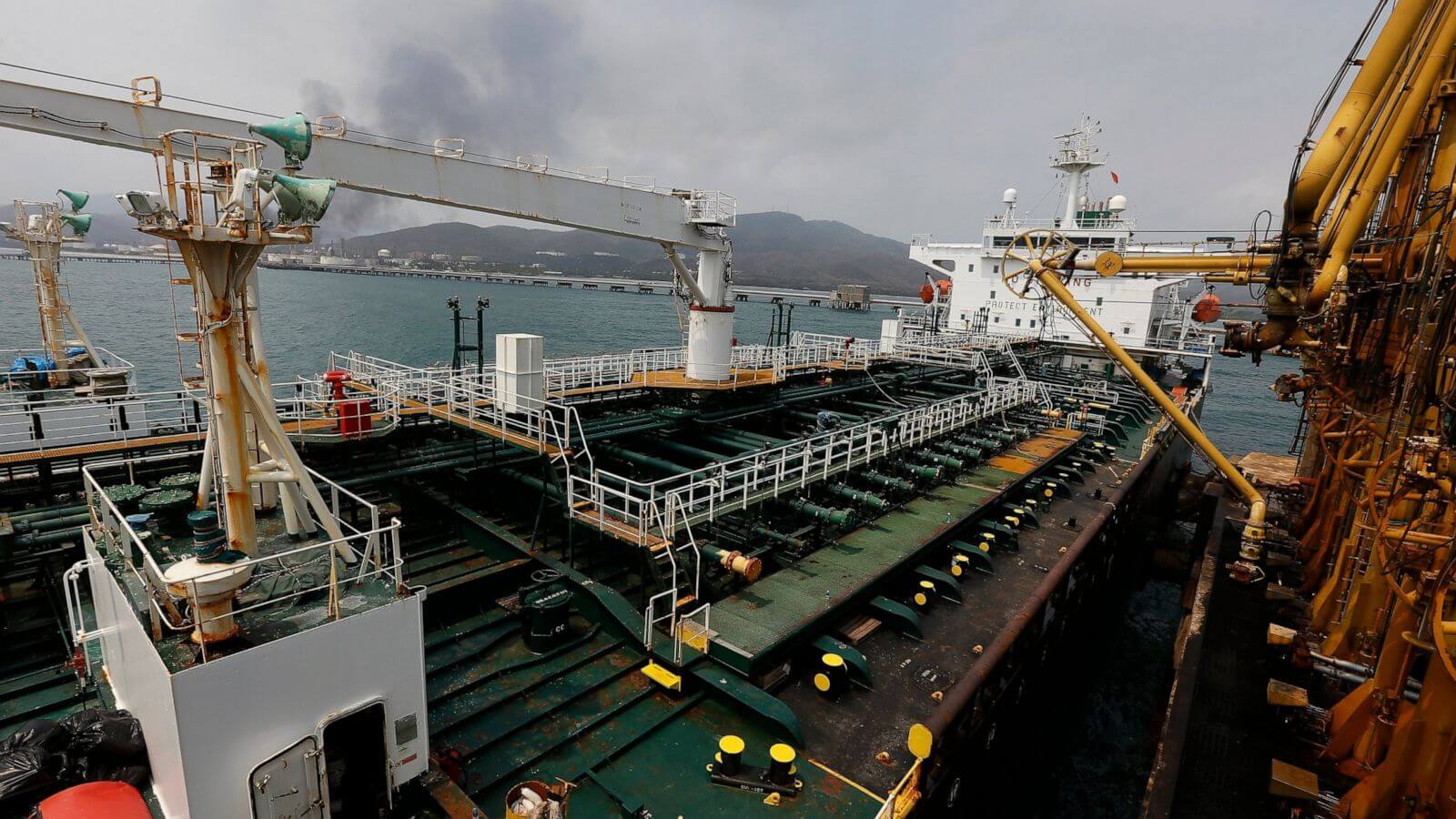The US has seized the cargo of four vessels transporting Iranian fuel to Venezuela, in another move aligning with its maximum pressure campaign against the two heavily sanctioned states. A senior US official told The Associated Press (AP) that rather than the use of military force and physical confiscation of the ships, US authorities threatened ship owners, insurers, and captains with sanctions to surrender their cargo.
Federal prosecutors in Washington DC filed a civil forfeiture complaint in July, alleging that the sale was arranged by Mahmoud Madanipour, a businessman with ties to the IRGC, which the US recognizes as a foreign terrorist organization. At the time, sanctions experts thought it would be impossible to enforce the US court order in international waters.
Prosecutors claim that the four ships—the Bella, Bering, Pandi, and Luna—were carrying 1.1 million barrels of gasoline to Venezuela. However, they never reached the shores of the South American nation and went missing. The whereabouts of the tankers and their cargoes are currently unknown, as the crew has likely turned off their tracking devices to hide their locations. The Bering was last spotted in the Mediterranean near Greece on May 11, and the Bella near the Philippines on July 2. The Luna and Pandi were last seen when they were together in the Gulf of Oman on July 10 when the US seizure order came. Experts have noted shipping data showing that the Pandi, which also goes by Andy, is reporting that it has been “broken up,” or sold as scrap.
Last year, the US imposed sanctions on the Venezuelan state-owned oil company PDVSA as part of its ‘maximum pressure’ strategy to force a transition in power away from President Nicolás Maduro. The US recognizes opposition leader Juan Guaidó as the legitimate leader of the South American country. Due to a combination of corruption under President Nicolás Maduro and crippling US sanctions, including against the state-run oil firm PDVSA, oil production has taken a severe downturn in Venezuela, despite it having the world’s largest oil reserves. This situation has been further hastened by Maduro’s decision to impose a limit on state subsidies, which had previously kept oil prices in the country artificially low. Thus, Venezuela is now forced to depend on importing gasoline.
Maduro’s socialist government has increasingly turned to Iran for oil. Simultaneously, it is expected to revive a certain amount of Iran’s oil exports, with both countries having been badly hit by US sanctions that are aimed at halting their crude oil production. Tehran is also providing Caracas with essential chemicals and materials needed to refine its oil reserves, which are the world’s largest.
The US has been ramping up pressure on ship owners to abide by sanctions against its adversaries such as Iran, North Korea, and Venezuela. In May, reports from Iran suggested that four US navy ships were in the Caribbean, possibly to stoke a confrontation with Iranian vessels, an issue that Tehran took to the UN. Iran’s ambassador to Venezuela, Hojad Soltani, said on Thursday that neither the ships nor their owners were Iranian and that this was just “another lie and act of psychological warfare perpetrated by the U.S. propaganda machine. Terrorist #Trump cannot compensate for his humiliation and defeat by Iran using false propaganda”.
Venezuela has also decried the sanctions by the United States, saying that its strategy of targeting vulnerable economies during a global pandemic is tantamount to “economic terrorism” and a “crime against humanity”. Previously, Venezuela’s defense minister, Vladimir Padrino, announced that ships and planes from the country’s armed forces will be escorting Iranian oil tankers headed towards its exclusive economic zone (EEZ), guarding against any possible aggression by the United States.

